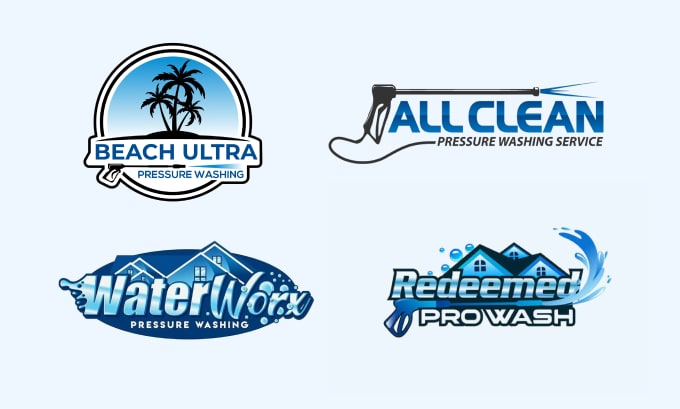The Importance of Safety in Professional Window Washing
The Importance of Safety in Professional Window Washing
Blog Article

When it comes to maintaining the appearance and integrity of a building, professional window and power washing cleaning plays a crucial role. Clean windows not only enhance the aesthetic appeal of a property but also contribute to a healthier environment by removing dirt, mold, and other contaminants. However, achieving that crystal-clear finish requires more than just good intentions; it demands a strong commitment to safety practices.
In the professional window washing industry, safety should always be the top priority. Workers face numerous hazards, from working at heights to handling powerful equipment. By adhering to rigorous safety standards and protocols, companies can protect their employees and ensure that the job is done efficiently and effectively. Understanding the importance of safety in professional window and power washing cleaning is essential for both service providers and property owners seeking quality results without compromising on health and well-being.
Safety Protocols for Window Washers
Ensuring safety during professional window and power washing cleaning is paramount for both workers and clients. Window washers must be trained to recognize potential hazards associated with working at heights, such as slips, trips, and falls. Proper training includes understanding how to use equipment correctly and recognizing weather conditions that may affect safety, such as high winds or rain. Maintaining clear communication among the team is also essential to prevent accidents.
Personal protective equipment, or PPE, plays a crucial role in safeguarding window washers while on the job. Essential gear includes harnesses, hard hats, gloves, and eye protection. These items help to mitigate the risks associated with falling debris or chemicals used in cleaning. Workers should inspect their PPE regularly and replace any damaged equipment to ensure they are always adequately protected while performing their duties.
In addition to personal safety gear, the use of the right tools and equipment is critical in professional window and power washing cleaning. Workers must choose ladders, lifts, and scaffolding that are suited for the height and type of building they are servicing. Furthermore, they need to be familiar with the equipment’s operating procedures and maintenance requirements. Keeping tools in good condition and using them as intended can significantly reduce the chances of accidents and injuries on the job site.
Risks Associated with Window Washing
Window washing, while essential for maintaining cleanliness and aesthetics, involves various risks that cannot be overlooked. One of the most significant dangers is the potential for falls. Professional window washers often work at great heights, and without proper safety measures such as harnesses, scaffolding, and guardrails, a simple slip or misstep can lead to serious injuries or even fatalities. The sheer elevation at which these workers operate makes fall prevention a critical aspect of their safety protocols.
In addition to falls, window washing can expose professionals to hazardous working conditions, including the use of chemicals in cleaning solutions. Many of these cleaning agents can be harmful if not handled properly. Improper use or lack of appropriate protective gear may lead to respiratory issues, skin irritations, or eye injuries. Adequate training and adherence to safety guidelines are essential to minimize these risks and ensure that workers remain healthy while performing their duties.
Another risk factor in window and power washing cleaning is the potential for equipment malfunction. Power washers can be particularly dangerous if not used correctly, as high-pressure water streams can cause serious injuries. It's crucial for professional window washers to regularly inspect their equipment for any signs of wear or malfunction. Proper training in the usage and maintenance of such equipment can significantly reduce the likelihood of accidents, thereby ensuring a safer working environment for all involved.
Best Practices for Safe Operations
When it comes to professional window and power washing cleaning, safety should always be the top priority. Employees must be properly trained on the equipment and techniques specific to the job. Understanding the risks associated with heights, slippery surfaces, and the use of chemicals is essential for minimizing accidents. Regular training sessions and safety drills can help to reinforce safe practices and keep everyone informed about the latest safety protocols.
https://g.co/kgs/WPB41iP
Proper equipment is critical for ensuring safe operations during any cleaning job. This includes personal protective equipment such as harnesses, hard hats, gloves, and goggles, as well as well-maintained pressure washers and lifts. Inspecting equipment before each use can prevent failures and accidents. Establishing a checklist for safety inspections ensures that nothing is overlooked, and it promotes a culture of safety within the team.
Moreover, maintaining clear communication among team members is vital, especially when working in potentially hazardous situations. Using hand signals or two-way radios can facilitate communication when working at heights or on large commercial properties. It is also important to establish a clear plan before starting any job, including designated roles and responsibilities. Encouraging a safety-first mindset fosters a more productive workspace and significantly reduces the likelihood of accidents during professional window and power washing cleaning.
Report this page